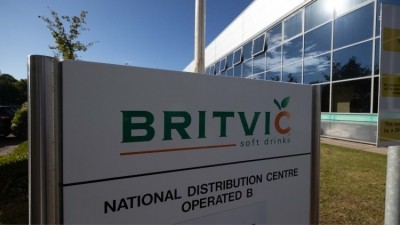News
Belvoir revels in in-house canning decision

The soft drinks manufacturer has installed a new canning line at its on-farm factory in Leicestershire, which can carton virtually any sized can into any multipack configuration.
The global canned beverage market is thriving, with insights firm Markets & Markets’ estimates showing it will reach $31.2bn in the next two years – growing at an annual rate of 5.6%.
The lightweight and convenience of canned drinks have been driven by behaviourisms formed during the pandemic, with the alcoholic ready-to-drink (RTD) market seeing particularly favour.
While the RTD canned cocktail market is predicted to grow, with Future Market Insights anticipating a CAGR of 6% from 2023 to 2033, there is also rising demand for sophisticated soft drink options, such as mocktails and botanical sodas.
Belvoir Farm had been catering to this market with a range of cans produced by a co-packer, but by 2022, it was seeing such demand that it decided to bring the process in-house.
“Our canned portfolio was growing at such a pace that we needed to invest in in-house production. Up until that point, we hadn’t truly committed to the category,” explained Martin Reynolds, head of engineering & project leader at Belvoir.
Choosing the right partner
The premium soft drinks manufacturer wanted to roll out a number of lines in a canned format to capitalise on the demand for RTD and devised plans to introduce RTD mocktails in 250ml cans alongside a new range of light soft drinks in 330ml slim cans and botanicals in 150ml. It also wanted to move into the multipack space, with fridge-friendly four packs (4 x 330ml slim cans) and six-packs (6 x 150ml mixer cans).
T. Freemantle won the brief, after it confirmed it could handle all the desired formats as well as ones Belvoir may want to introduce in the future. The machinery provider also promised it could be done within a six-month lead time.
“Time was of the essence as we had already closed the contract with our co-packer so there was massive pressure on the factory to get can production moving again,” explained Reynolds.
T. Freemantle were also able to help Belvoir with the final form of the multipacks through its design studio service.
“Initially we were thinking we wanted an open-sided pack, but T. Freemantle’s advice was that a FEC (Fully Enclosed Carton) would be more viable. They gave us a good steer on what cartonboard would be suitable and pointed us in the direction of Graphic Packaging for designing and printing the cartons. They also recommended a really good glue supplier,” Reynolds added.
High speed cartoning
High speed packing of beverage cans into smaller cartons is a tricky feat however. Although it’s possible to run four-packs on a machine designed for producing 12 or 24 can multipacks from thicker corrugated board, the line speeds tend to be slower. This is why a lot of drinks manufacturers hand pack smaller cartons.
Instead of wrapping a blank around a collation of cans and then gluing it, the Automatic Beverage Multipack Machine installed at Belvoir uses pre-glued cartons, which are picked one at a time from a magazine holder, erected and presented to the can collation. This continuous motion speeds up the cartoning process considerably.
An infeed gate system facilitates the efficient release of cans into the machine, where they are guided into a diamond shape that is maintained along the length of the machine until they have been deposited in the open cartons.
The diamond shape is important as it allows for the cans to be more easily inserted into the cartons and reduces the risk of snagging.
The machine also has the added benefit of no changeover parts – so the shift from one size to another can be enacted easily and in just 15 minutes.
Belvoir’s minimum line speed requirement – set by the filler – was 12,500 cans per hour, which equates to 50 cartons per minute. According to Reynolds, the new line “easily and consistently” runs at 55 cartons per minute and could potentially reach 70 cartons per minute.
In fact, in the first six months of operation (June to December 2023), Belvoir produced 1.5m cans – more than a year’s worth of production under the co-packer arrangement.
Future plans for Belvoir
Next year, Belvoir is targeting between 5m-10m cans, produced across several canning campaigns.
“As our canning line currently shares some equipment with our bottling line, we don’t can all the time. We plan a two or three week ‘canning campaign’, usually every other month, based on forecasts.”
The entire project was structured with short term sales targets and a long-term goal of achieving payback within five years. To this end, in 2025, the company will invest £2m in new pasteurising and palletising equipment to allow the canning line to run independently, thereby further increasing capacity.
Commenting on the impact of the project on the company’s objectives, Reynolds said: “It’s early days, but already we have secured new distribution for our RTD canned launches and are seeing growth from export markets, in particular the US, Australia, Canada, Japan and China.
“The flexibility afforded by the Automatic Beverage Multipack Machine is invaluable in helping us to adapt to market demands, whether that is producing an extra 10,000 cans or a 10-can pack for a US retailer.”
In other news, Brian May has quit his role at the RSPCA following Assured scheme scandal.
















